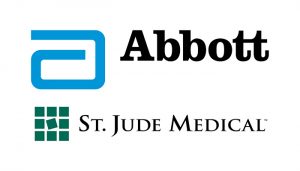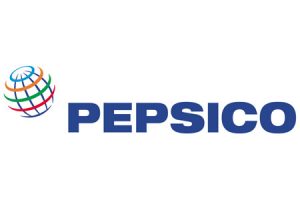 Top Class Action Lawsuits
Top Class Action Lawsuits
Flash in the Pan? Vizio got hit with a consumer fraud class action lawsuit this week over allegations its smart TVs aren’t up to the job, and the company knew it.
The complaint was filed by consumers who allege the “smart” televisions they purchased between 2012 and the present don’t work as advertised.
Specifically, the Vizio complaint alleges that Vizio “smart” TVs were marketed as such based on their ability to access Apps such as YouTube and others. However, they failed to warn consumers that there would come a time when the service would no longer work.
The reason that many of these TVs don’t function properly is due to the fact that they use an older Flash-based Application Programming Interface (API) and not the newer HTML5-based API systems. As of June 26, 2017, YouTube no longer works on TVs with the Flash-based API.
Although Vizio has sold TVs with the newer API since 2013, the company hasn’t offered any remedy to consumers with TVs using the Flash-based programming. Instead, they have offered them the same advise as YouTube, which is to buy an external streaming device such as a Google Chromecast.
According to the Vizio lawsuit, “Defendant sold Affected Smart TVs to consumers by promoting them as inherently different from traditional television sets based on their ability to access video streaming entertainment apps. Defendant promoted Affected Smart TVs as having all the convenience of smartphones and computers with the ease and convenience of using a familiar device – the television set – in the comfort of consumers’ living rooms. To lure consumers in, Defendant promoted its most popular Affected Smart TV video streaming entertainment apps, including Netflix, Hulu, and YouTube. Specifically, Defendant promoted Affected Smart TVs by placing the YouTube logo on its packaging, in-store displays, and by displaying the YouTube app in its commercials and in online advertising to inform consumers that Affected Smart TVs came with YouTube access included upon purchase.”
According to the complaint, Vizio notified consumers of the issue by a posting on its website listing the affected models.
The proposed class includes anyone in the United States who purchased a Smart TV with one of the model numbers listed below.
The proposed class action also seeks to represent consumers who bought and still own affected Vizio TV sets and reside in Alaska, Arizona, California, Connecticut, Delaware, the District of Columbia, Florida, Georgia, Hawaii, Illinois, Maine, Maryland, Massachusetts, Michigan, Minnesota, Missouri, New Hampshire, New Jersey, New York, North Carolina, North Dakota, Ohio, Rhode Island, Texas, Vermont, Washington, and West Virginia.
The model numbers allegedly affected are:
241i-A1* E241i-A1w* E291i-A1* E320i-A0* E390iA1* E3D320VX* E3D420VX* E3D470VX* E3DB420VX* E420d-A0* E420i-A0* E420i-A1* E422VA* E422VL*E422VLE* E423VL* E470i-A0* E472VL* E472VLE* E500d-A0* E500i-A0* E500i-A1* E550i-A0*E550i-A0E*E551d-A0* E551i-A2* E551VA* E552VL* E552VLE*E601i-A3* E650i-A2* E701i-A3* M320KD*M320SL*M320SV* M370SL* M370SR* M370SV* M3D420SR* M3D421SR* M3D460SR* M3D470KD*M3D470KDE* M3D550KD* M3D550KDE* M3D550SL*M3D550SR* M3D650SV* M3D651SV* M420KD*M420SL*M420SR* M420SV* M470KD* M470NV M470SL*M470SV* M472VL* M550KD* M550SL*M550SV*VBR121* VBR122* VBR133* VBR135* VBR140* VBR370*
The Case is 3:17-cv-05897.
Top Settlements
TGI Settlement Time? This time TGI Friday’s might make it to the table after all. The settlement table that is. Further to a proposed settlement deal reached in September, 2017, preliminary approval has been granted for a revised $19.1 million settlement of an unpaid wage and hour action lawsuit brought against TGI Friday’s.
The original settlement was rejected by US District Judge Analisa Torres as she found the proposed class action’s confidentiality provision was impermissibly vague and its waivers and releases too broad. However, the revised settlement, if granted final approval, would see restitution for 28,000 TGI Friday’s tipped workers who had claimed violations of the Fair Labor Standards Act (FLSA), and the state and federal labor laws of California, Colorado, Connecticut, Florida, Illinois, Maryland, Michigan, New Jersey and New York.
TGI Friday’s has been ordered to transmit the settlement funds to the settlement account by November 9, and the claims administrator instructed to create and institute a dedicated website by the same date.
Upon final approval of the TGI Friday’s settlement, the workers would receive a pro rata share of the settlement based on the number of weeks they worked during the proposed class period, according to court documents.
The named defendants in the employment lawsuit are the restaurant chain TGI Friday’s Inc. and TGI Friday’s former owner, the hospitality firm Carlson Restaurants Inc.
The workers alleged the defendants improperly took a “tip credit” from their paychecks and paid them a reduced minimum wage, which in this case, is not allowed under the FLSA and state laws. The plaintiffs also claimed the restaurant owners failed to pay them all owed overtime and uniform-related expenses, misappropriated tips and took unlawful deductions for customer walkouts.
The case is Julio Zorrilla et al. v. Carlson Restaurants Inc., Carlson Restaurants Worldwide Inc. and TGI Friday’s Inc., case number 1:14-cv-02740, in the U.S. District Court for the Southern District of New York.
Burning Issue Resolved? L’Oreal has agreed to pony up some cash to settle a defective products class action lawsuit alleging the cosmetics giant misrepresented the safety of its hair relaxer, consequently causing injury to consumers. Relax and read on…
The lawsuit alleged that L’Oreal’s Amla Legend Rejuvenating Ritual Relaxer damages hair and causes burns and blisters on the scalp.
US District Judge Jed S. Rakoff certified a class of Florida purchasers who bought the product after December 1, 2012, and a class of New York purchasers who bought the product after August 19, 2013. Both classes are seeking full refunds based on allegations of unjust enrichment, according to court documents. Further, the New York class is seeking $50 in damages for each class member.
As well, classes of Florida and New York consumers seeking injunctive and declaratory relief were certified, because they claim they intend to buy hair relaxers in the future but can’t trust the advertising without injunctions barring L’Oreal from making the allegedly misleading statements, according to the filing. Judge Rakoff declined to certify national, multistate and non-economic injury classes of women.
According to court documents, “Each alleged injury in this case arose from the same product whose packaging contained the same allegedly misleading representations and omissions.”
The case is In re: Amla Litigation, case number 1:16-cv-06593, in the U.S. District Court for the Southern District of New York.
Ok – That’s a wrap for this week. See you at the bar!

 Top Class Action Lawsuits
Top Class Action Lawsuits Top Class Action Lawsuits
Top Class Action Lawsuits Top Class Action Lawsuits
Top Class Action Lawsuits Top Class Action Lawsuits
Top Class Action Lawsuits  Top Class Action Lawsuits
Top Class Action Lawsuits  Top Class Action Lawsuits
Top Class Action Lawsuits  Top Class Action Lawsuits
Top Class Action Lawsuits  Top Class Action Lawsuits
Top Class Action Lawsuits  Top Class Action Lawsuits
Top Class Action Lawsuits